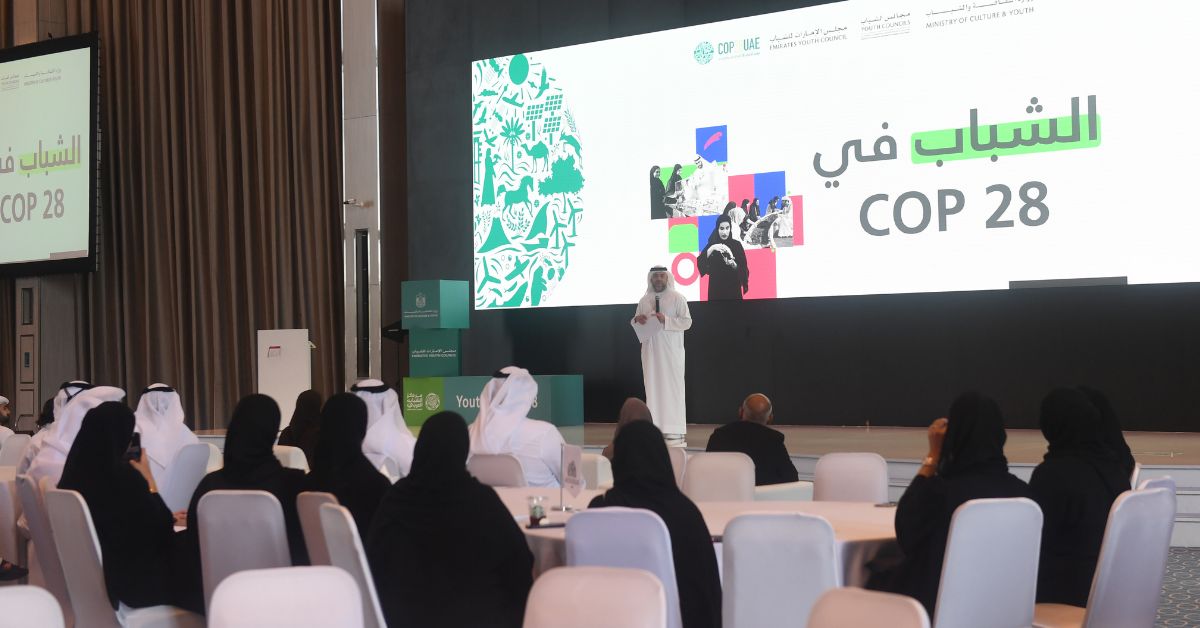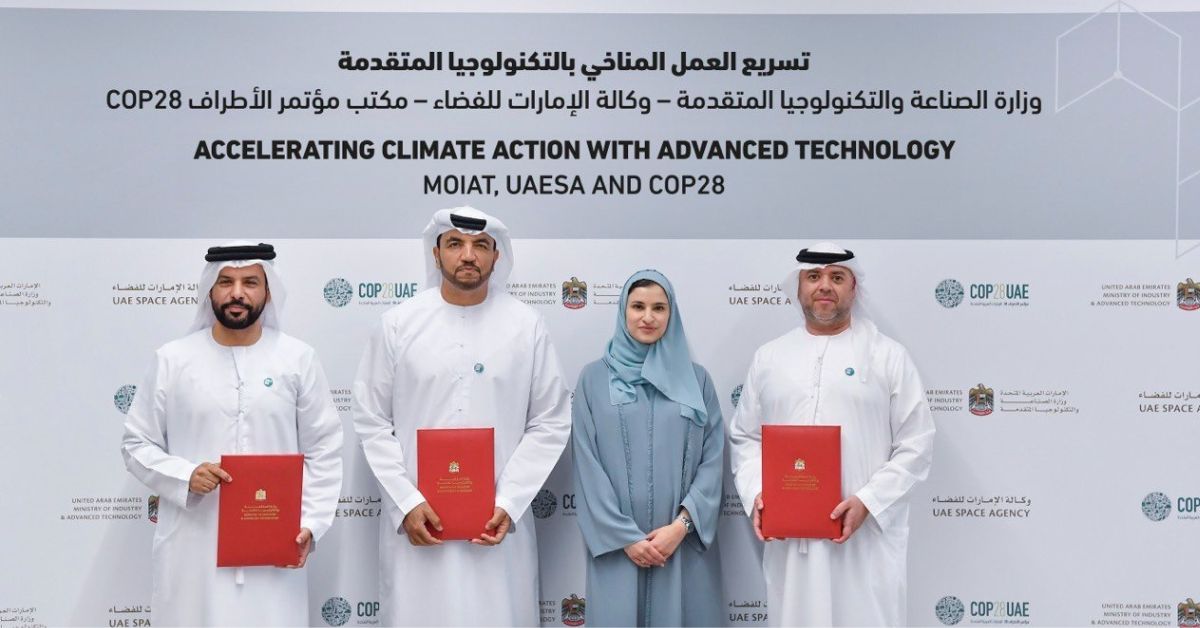ABU DHABI — The UAE is poised to take center stage in the pursuit of a sustainable and climate-resilient future as it gears up to host the COP 28 Conference in 2023. COP 28, the preeminent global climate summit, assembles nations, leaders, and experts to deliberate, negotiate, and operationalize strategies to confront the pressing challenges posed by climate change.
Accepting the responsibility of facilitating discussions and forging consensus, the UAE aims to trigger transformative actions in response to the escalating global climate crisis.
Pedro G. Gomez Pensado, Head of Climate & Member of the Executive Committee at the World Economic Forum (WEF), emphasized the ongoing and advancing preparations for the conference. He pointed out the unique nature of this year’s meeting, citing the mounting urgency driving the need to intensify efforts in addressing the climate crisis.
“We are increasingly confronting the direct impacts of this crisis,” he told TRENDS. Notably, he referenced the current prevalence of record-breaking heatwaves wreaking havoc across regions and ecosystems.
He underscored the significance of the global stocktake, a key focus of this year, wherein progress toward climate action implementation would be assessed, and strategies to enhance the pace and scale would be identified.
Pensado positioned the UAE as a vanguard in both emission reduction endeavors and the ramifications of the crisis, suggesting its potential to facilitate progress. “The UAE’s prominence in global energy markets, with strong involvements in renewables and oil and gas, offers numerous opportunities for stakeholders to foster climate collaboration.”
He acknowledged the intricate nature of this role, which brings complexities in interacting with various stakeholders in the climate arena. He stressed the collective responsibility demanded by the climate crisis, urging contributions from all corners of the globe and from every entity willing to commit tangible actions. Recognizing the challenges ahead, he emphasized the necessity of maintaining robust ambition and a steadfast focus on action.

Recent announcements from the COP Presidency detailed four overarching shifts the conference aims to promote:
Accelerating the Energy Transition and Emission Reductions by 2030: The UAE intends to promote the transition to renewable energy systems while simultaneously decarbonizing existing systems, ensuring equitable development for developing nations.
Fulfilling Previous Commitments and Shaping a New Finance Framework: Finance as a catalyst for climate action is a pivotal consideration. The focus is on aggregating commitments from developed countries to fortify the Green Climate Fund and exploring innovative funding avenues, such as blended finance and philanthropic partnerships.
Placing Nature, People, Lives, and Livelihoods at the Core: The conference prioritizes enhancing the resilience of ecosystems and communities, fostering sustainable development that addresses the needs of people, the economy, and the environment. This includes addressing the issue of loss and damage.
Mobilizing for Inclusivity: Acknowledging the increasing diversity of participants, the conference seeks broad representation from all segments of society to effectively tackle the global climate crisis.
The UAE’s prominence in global energy markets, with strong involvements in renewables and oil and gas, offers numerous opportunities for stakeholders to foster climate collaboration.
Pedro G. Gomez Pensado, Head of Climate & Member of the Executive Committee at the World Economic Forum
Pensado shared that the World Economic Forum would leverage its influence to facilitate dialogues centered on key priorities in various sectors, including:
Decarbonizing Industries: Focusing on industries with high emissions, such as long-haul transport and materials like steel, aluminum, cement, and concrete.
Transitioning Energy Systems: Emphasizing innovation and transition in energy systems to reduce carbon intensity while maintaining energy access, affordability, and security.
Scaling Renewable Energy: Promoting the expansion of renewable energy supply worldwide, especially in emerging economies.
Regenerative Food and Agriculture Systems: Exploring regenerative practices in food and agriculture systems that promote climate action and ecosystem restoration.
Nature Ecosystems: Mobilizing business, private finance, and philanthropy for nature-positive outcomes, protecting and restoring crucial carbon sinks and biodiversity hotspots.
Innovative Climate Finance: Addressing the substantial climate finance requirement for achieving net-zero by 2050, emphasizing the need for innovative finance mechanisms and partnerships across sectors.
Pensado highlighted persisting challenges in tackling climate change. He underscored the inadequacy of global climate action thus far and the urgency to recalibrate efforts. While acknowledging some progress—moving from a projected 4 degrees of warming to approximately 2.5 degrees by 2050—he stressed the importance of sustained acceleration to meet the goals of the Paris Agreement. He urged collaborative efforts among public and private sector leaders to mitigate the human impact through decarbonization and adaptation.
The ongoing collaboration across governments, the private sector, and civil society was seen as unprecedented, highlighting the collective nature of addressing the crisis. The upcoming COP meeting in Dubai was highlighted as a pivotal moment to harness this momentum and expedite global decarbonization efforts. The years ahead were deemed critical, requiring collaborative, coordinated, and concerted multi-stakeholder action to propel progress in the right direction.








